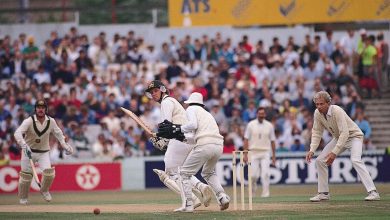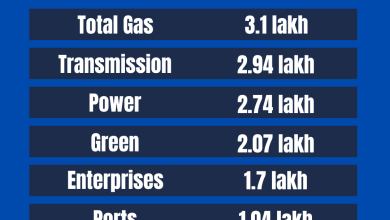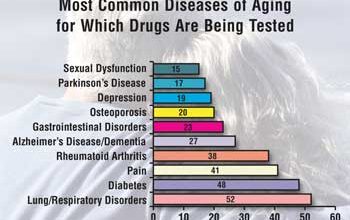Introduction And History of Germany: A Fascinating Journey
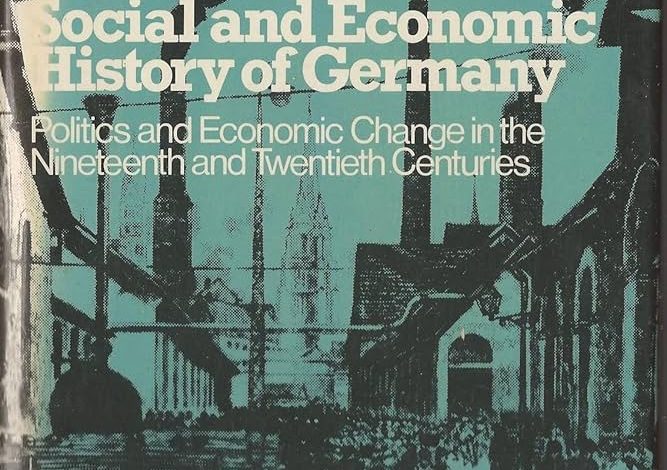
Germany is a country located in the heart of Europe. It is known for its rich culture and history. Germany has played an important role in shaping the world’s history.
Geographical Location
Germany is in Central Europe. It shares borders with nine countries. These countries are Denmark, Poland, Czech Republic, Austria, Switzerland, France, Luxembourg, Belgium, and the Netherlands. Germany has many rivers, including the Rhine, Elbe, and Danube.
Early History of Germany
The history of Germany dates back to ancient times. The land was inhabited by Germanic tribes. These tribes lived in small communities. They were farmers and warriors.
Roman Empire And Germanic Tribes
The Roman Empire tried to conquer the Germanic tribes. The tribes fought back fiercely. In the year 9 AD, the Germanic tribes won a great victory. They defeated the Romans in the Battle of the Teutoburg Forest.
The Middle Ages
During the Middle Ages, Germany was part of the Holy Roman Empire. The Holy Roman Empire was a group of territories in Central Europe. It was ruled by an emperor. The empire lasted from 800 to 1806.
Charlemagne
Charlemagne was the first emperor of the Holy Roman Empire. He was crowned in 800 AD. Charlemagne united many Germanic tribes. He spread Christianity throughout his empire.
The Hanseatic League
In the 14th century, the Hanseatic League was formed. It was a group of cities in Northern Germany. They worked together to protect their trade interests. The league was very powerful and wealthy.

Credit: www.historyrhymes.info
The Reformation
The Reformation was a major event in Germany’s history. It began in the 16th century. A German monk named Martin Luther started it. He wanted to reform the Catholic Church. His ideas spread quickly. This led to the creation of Protestant churches.
Martin Luther
Martin Luther was born in 1483. He became a monk and a professor. In 1517, he wrote 95 Theses. These were his ideas for reforming the church. He nailed them to the door of a church in Wittenberg. This act started the Reformation.
The Thirty Years’ War
The Thirty Years’ War took place from 1618 to 1648. It was a conflict between Protestant and Catholic states in the Holy Roman Empire. The war caused great destruction. Many people died, and towns were destroyed.
The Rise of Prussia
Prussia was a powerful state in Northern Germany. It played a key role in German history. In the 18th century, Prussia became very strong. It had a powerful army and a smart leader named Frederick the Great.
Frederick The Great
Frederick the Great ruled Prussia from 1740 to 1786. He was a brilliant military leader. He expanded Prussia’s territory. He also supported the arts and education.
The Unification of Germany
Germany was not a single country until 1871. Before that, it was made up of many small states. The unification of Germany was a major event. It was led by Otto von Bismarck, the Prime Minister of Prussia.
Otto Von Bismarck
Otto von Bismarck was a skilled politician. He used diplomacy and war to unite the German states. In 1871, the German Empire was formed. It was ruled by Kaiser Wilhelm I.
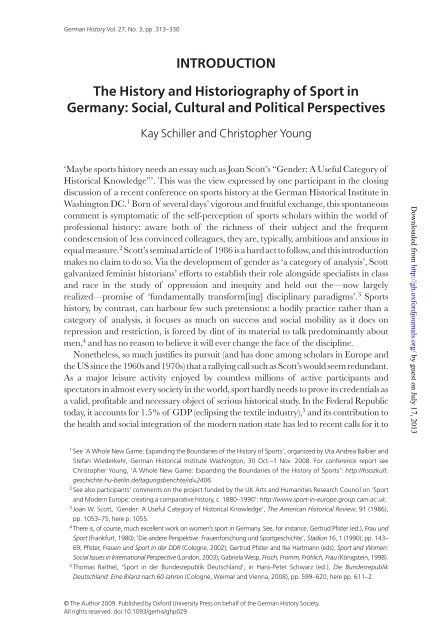
Credit: www.yumpu.com
World War I
Germany played a big role in World War I. The war lasted from 1914 to 1918. Germany was part of the Central Powers. The Central Powers lost the war. Germany had to sign the Treaty of Versailles. The treaty imposed harsh penalties on Germany.
World War II
World War II was another major event in Germany’s history. It lasted from 1939 to 1945. Germany was led by Adolf Hitler and the Nazi Party. The war caused great destruction. Many people died, and cities were bombed.
The Holocaust
The Holocaust was a terrible event during World War II. The Nazis killed six million Jews. Many others were also killed. This included Romani people, disabled people, and political opponents.
Post-War Germany
After World War II, Germany was divided into two parts. These were East Germany and West Germany. East Germany was controlled by the Soviet Union. West Germany was supported by the United States and its allies.
Berlin Wall
In 1961, the Berlin Wall was built. It separated East and West Berlin. The wall became a symbol of the Cold War. It was torn down in 1989. This event marked the end of the Cold War.
Reunification of Germany
In 1990, East and West Germany were reunited. This was a joyful event. Germany became a single country again. The reunification brought many challenges. But it also brought new opportunities.
Modern Germany
Today, Germany is a strong and prosperous country. It has a powerful economy. Germany is a leader in science, technology, and culture. It is also an important member of the European Union.
German Culture
Germany has a rich cultural heritage. It is known for its music, art, and literature. Famous German composers include Beethoven and Bach. The country also has many famous authors, like Goethe and Schiller.
German Festivals
Germany has many fun festivals. Oktoberfest is a world-famous beer festival. It takes place in Munich. Another important festival is Christmas. German Christmas markets are very popular.
Frequently Asked Questions
What Is The Origin Of Germany’s Name?
The name “Germany” originates from the Latin word “Germania. “
When Was Germany First Established?
Germany was first established in 1871 with the unification of various states.
Who Founded Modern Germany?
Otto von Bismarck founded modern Germany in 1871.
What Was Germany Before 1871?
Before 1871, Germany was a collection of independent states and duchies.
Conclusion
Germany has a long and fascinating history. It has faced many challenges. But it has also achieved great things. Today, Germany is a country that looks forward to the future.


